ACLU
Latest
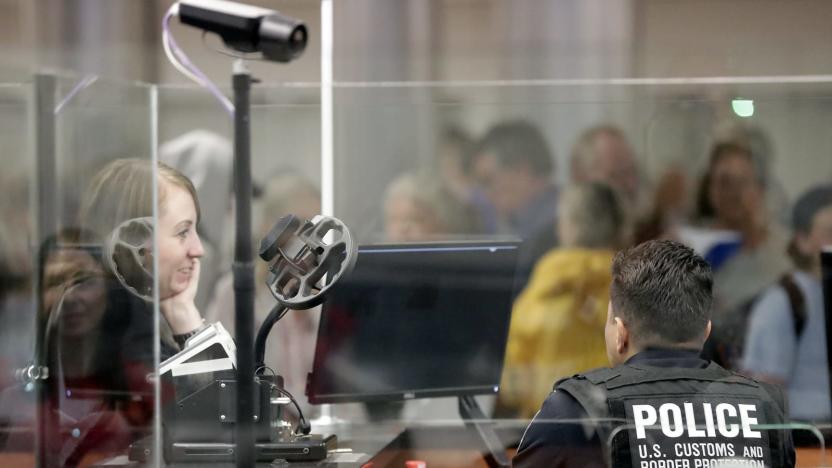
Federal judge rules suspicionless device searches at the border are illegal
Civil liberties advocates just scored an important victory in a bid to prevent arbitrary device searches at the US border. A federal court handling a 2017 lawsuit has ruled that US policies allowing device searches without valid suspicion or warrants violate Fourth Amendment protections against unreasonable searches and seizures. Judge Denise Casper noted that an exemption for searches at the border was "not limitless," and still needed to strike a balance between privacy and government interests. That usually means focusing on contraband, she said.
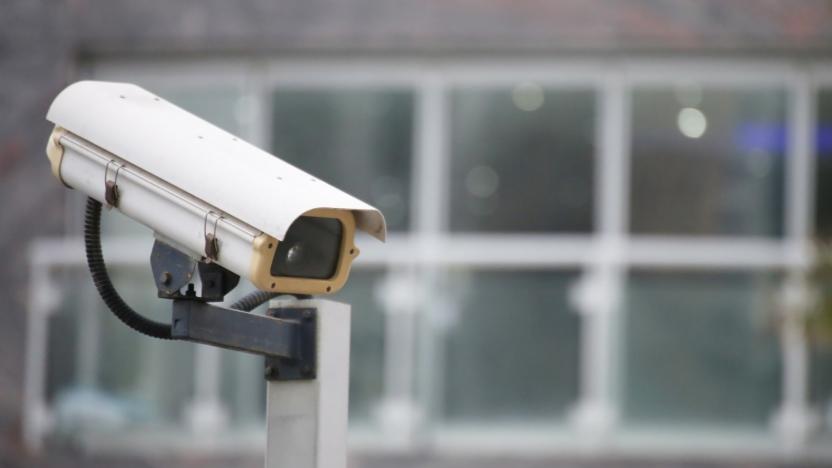
ACLU sues to reveal the FBI's uses of facial recognition
The ACLU is unsurprisingly concerned about the FBI's use of facial recognition, and it wants to force the agency to divulge its practices. It just filed a lawsuit against the FBI, the Justice Department and the DEA ordering them to turn over records showing "when, where and how" they use facial recognition tech. The civil liberties group was concerned that these systems could "fundamentally alter" society and lead to constant surveillance, and pointed to the FBI's history and public stances as reasons to be concerned.
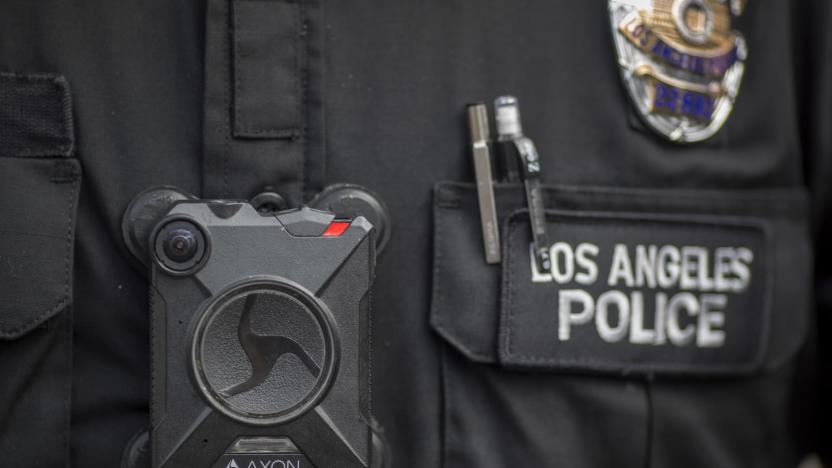
California's new police body cam law blocks the use of facial recognition
In August, backers of California's Body Camera Accountability Act pointed out a test of facial recognition software that identified 26 state lawmakers as criminals. They argued it showed the flaws of such technology, and now Governor Gavin Newsom has signed AB1215 into law, preventing law enforcement in the state from "installing, activating, or using any biometric surveillance system in connection with an officer camera or data collected by an officer camera" through 2023. It goes into effect on January 1st, 2020. The bill's sponsor, Phil Ting said of facial recognition tech, "It's not ready for prime time, as it falsely matches innocent people with mugshots, including me." ACLU technology and civil liberties attorney Matt Cagle said "With this law, California has acted boldly to stem the expansion of a surveillance state that presents an unprecedented threat to our rights and liberties. ace-scanning police body cameras have no place on our streets, where they can be used for dragnet and discriminatory surveillance of people going about their private lives, including their locations and personal associations."
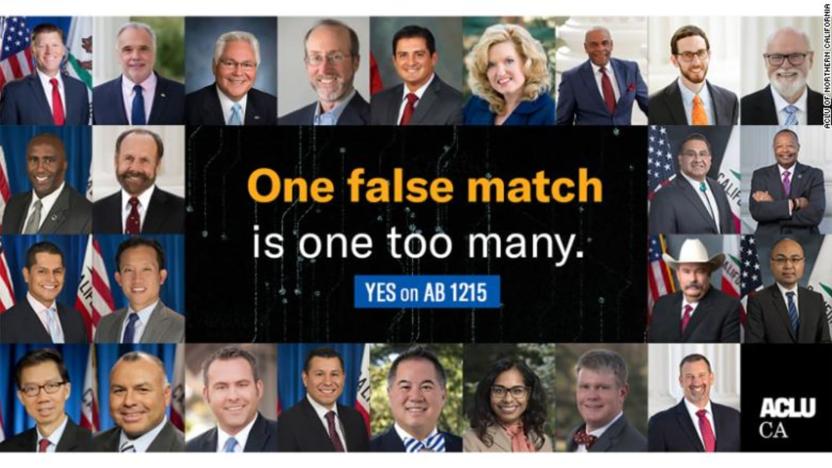
Facial recognition tech misidentified 26 California lawmakers as criminals
The ACLU, which wants to ban facial recognition technology in police body cameras, says that its own tests of the technology mistakenly flagged 26 California lawmakers as criminals. More than half of those falsely identified were people of color. The experiment follows a similar test conducted last year, where 28 members of Congress -- the majority also people of color -- were mistakenly identified as criminals.
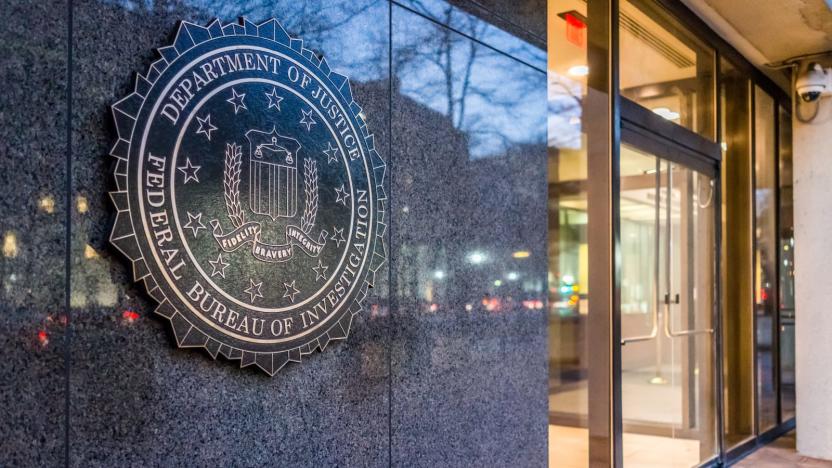
The FBI plans more social media surveillance
The FBI wants to gather more information from social media. Today, it issued a call for contracts for a new social media monitoring tool. According to a request-for-proposals (RFP), it's looking for an "early alerting tool" that would help it monitor terrorist groups, domestic threats, criminal activity and the like.
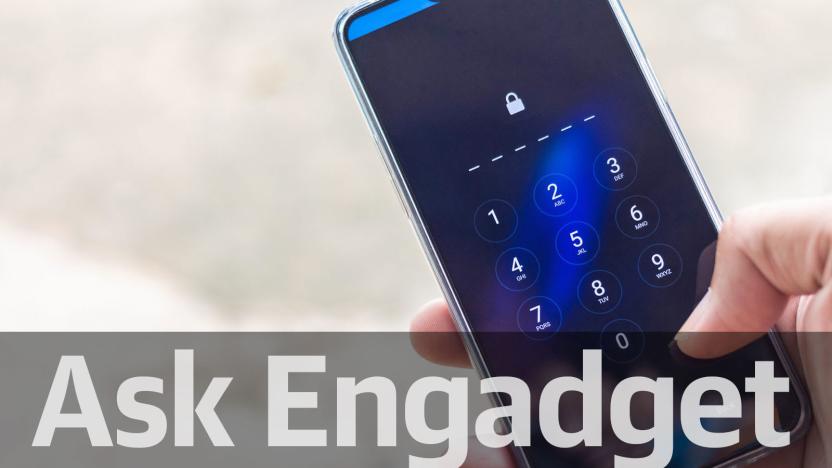
Ask Engadget: Can the police make me unlock my smartphone?
The support shared among readers in the comments section is one of the things we love most about the Engadget community. Over the years, we've known you to offer sage advice on everything from Chromecasts and cameras to drones and smartphones. In fact, our community's knowledge and insights are a reason why many of you participate in the comments. We truly value the time and detail you all spend in responding to questions from your fellow tech-obsessed commenters, which is why we've decided to bring back our "Ask Engadget" column. This week's question concerns the legal side of technology. Weigh in with your advice in the comments -- and feel free to send your own questions along to ask@engadget.com! What are my rights (as a US citizen) if the police ever ask me to unlock my phone?
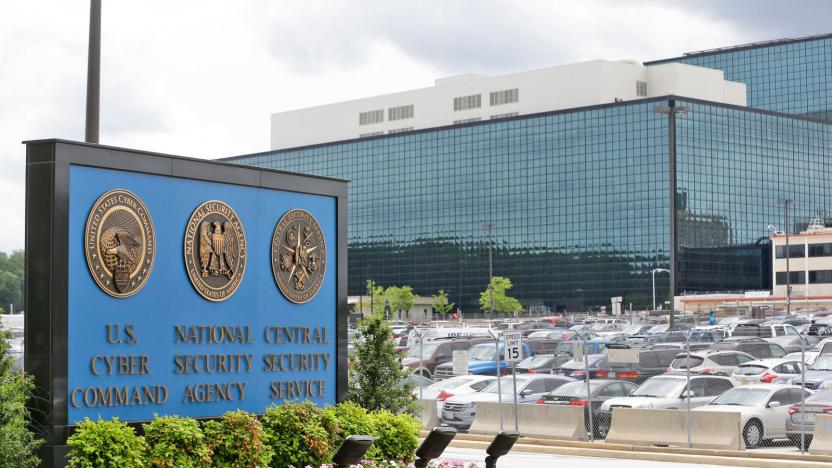
NSA improperly collected even more call records than we thought
According to documents obtained by the ACLU, the NSA's problem of collecting unauthorized American phone call data is worse than we first thought. Last May, the NSA deleted more than 600 million call records that it collected in error. The agency claimed that telecoms shared information on calls unrelated to NSA targets, and in doing so, violated federal laws. To be safe, the NSA dumped a massive amount of call records and said it had gotten to the "root cause" of the problem. But a report released by the ACLU, states that just a few months later, the NSA once again obtained information about Americans' phone calls that it was not authorized to collect under Section 215 of the Patriot Act.

ACLU: Police must get warrants to obtain personal data from cars
You might not think of your car as a treasure trove of personal data, but it frequently is -- performance data, phone contacts and location info may be sitting under the hood. And the American Civil Liberties Union wants to be sure police can't just take it. The organization is appearing as a friend of the court in Georgia's Supreme Court on June 19th to argue that personal data on cars is protected by the US Constitution's Fourth Amendment and thus requires a warrant. The appearance is tied to a case, Mobley vs. State, where police used a car's "black box" to level more serious charges.
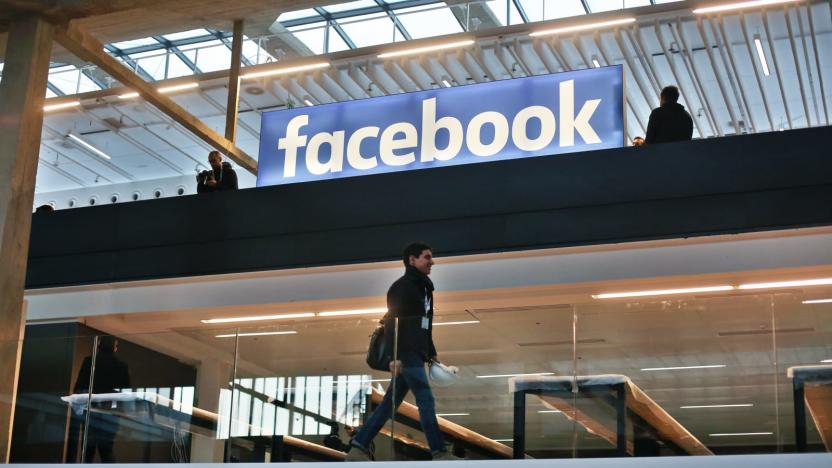
Facebook limits ad targeting following discrimination settlement
Facebook has settled the lawsuit accusing the company of violating housing discrimination law through its ad system, and it's making changes to reduce the chances of future issues with housing ads and beyond. Marketers who want to run ads for credit, employment or housing will no longer have options to target using age, gender or ZIP code. They'll also have a "much smaller" range of categories to use in the first place, and won't have access to "detailed" targeting that relates to protected social classes. As a user, you'll eventually have access to a tool to search for housing ads targeted at locations across the US, even if you wouldn't normally see them.

Dozens of law enforcement agencies are helping ICE track cars
More than 9,200 Immigration and Customs Enforcement employees have access to a license plate database that allows authorities to track the movement of vehicles over time. The American Civil Liberties Union says more than 80 law enforcement agencies across several states are sharing license plate details with ICE, which purportedly doesn't have sufficient safeguards to prevent abuse.
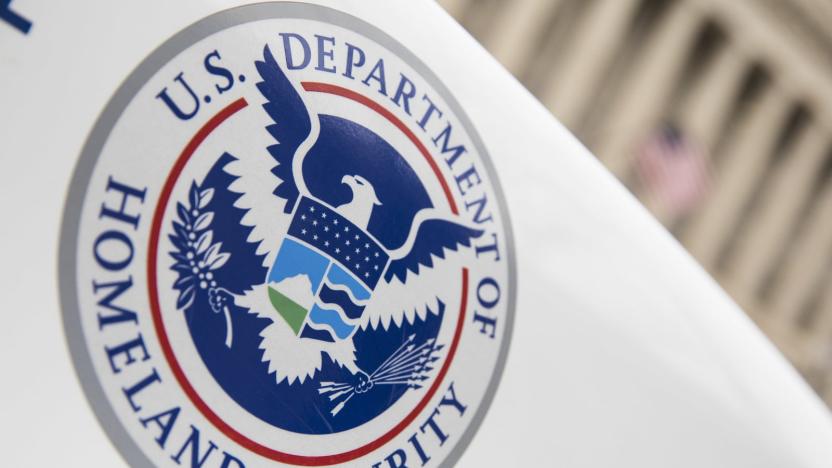
ACLU sues US government over social media surveillance of immigrants
The ACLU has sued the federal government, naming the Department of Justice, the FBI, the Department of Homeland Security, ICE, US Customs and Border Protection, US Citizenship and Immigration Services and the State Department as defendants. The civil rights organization is seeking information regarding the government's practice of monitoring immigrants' and visa applicants' social media accounts, information that it says these agencies have been withholding.

Taylor Swift concert used facial recognition tech to identify stalkers
You're probably used to the presence of facial recognition cameras at airports and other transport hubs, but what about at concerts? That's the step Taylor Swift's team took at her May 18th show at the Rose Bowl, in a bid to identify her stalkers. According to Rolling Stone, the camera was hidden inside a display kiosk at the event, and sent images of anyone who stopped to look at the display to a "command post" in Nashville, where they were cross-referenced with other photos of the star's known stalkers.
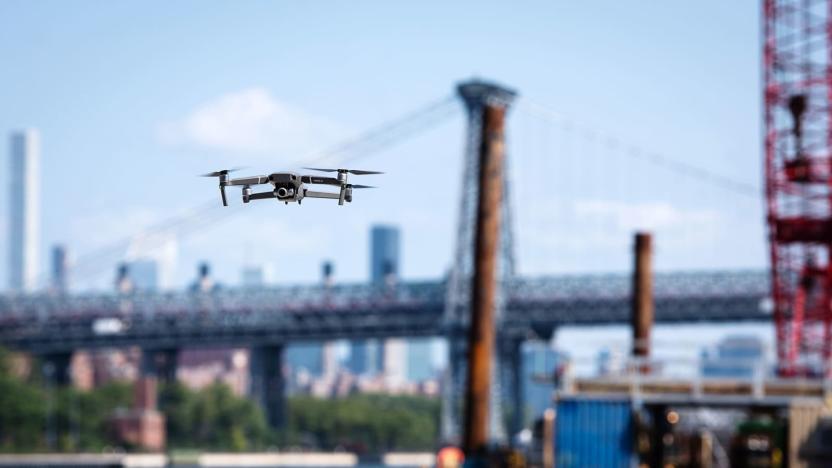
Senate passes bill that lets the government destroy private drones
This week, the Senate passed the FAA Reauthorization Act, which, among other things, renews funding for the Federal Aviation Administration and introduces new rules for airports and aircraft. But the bill, which now just needs to be signed by the president, also addresses drones. And while parts of the bill extend some aspects of drone use -- such as promoting drone package delivery and drone testing -- it also gives the federal government power to take down a private drone if it's seen as a "credible threat."
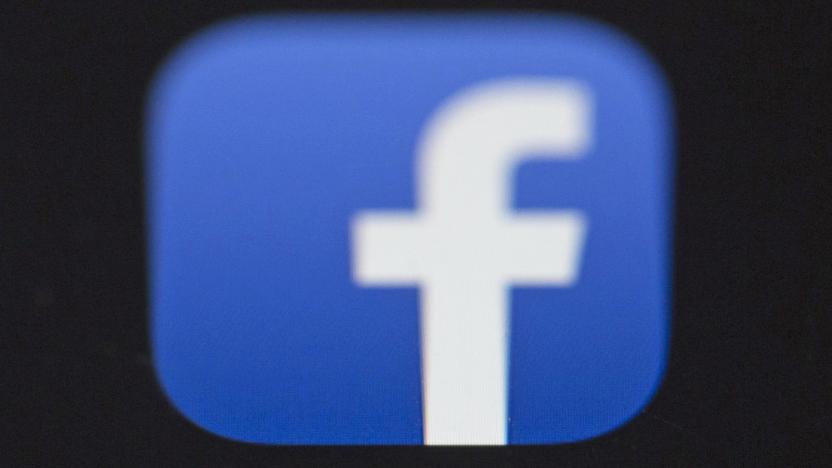
ACLU: Facebook allowed gender-discriminating job ads
The ACLU has filed a complaint against Facebook with the Equal Employment Opportunity Commission for what it says is unlawful gender-based targeting of job ads. The organization filed the charges on behalf of three women, the Communications Workers of America and the women the CWA represents. Its charges allege that Facebook allowed employers to target their job ads toward men and it names 10 companies that it says took advantage of that feature.
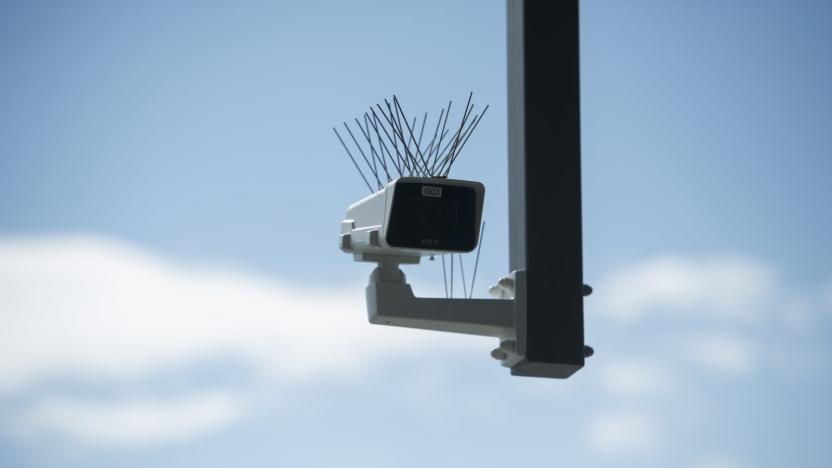
Orlando didn't renew its facial recognition contract with Amazon
The Orlando Police Department is one of the law enforcement groups that has been testing Amazon's facial recognition service Rekognition, using it in its headquarters and in downtown Orlando, though supposedly only with officers that agreed to test the system. However, the pilot program expired last week and the department says it has not yet decided whether it will continue to use the facial recognition technology. "Staff continues to discuss and evaluate whether to recommend continuation of the pilot at a further date. At this time that process in still ongoing and the contract with Amazon remains expired," the city of Orlando and the police department said this week in a joint statement given to Floridapolitics.com.
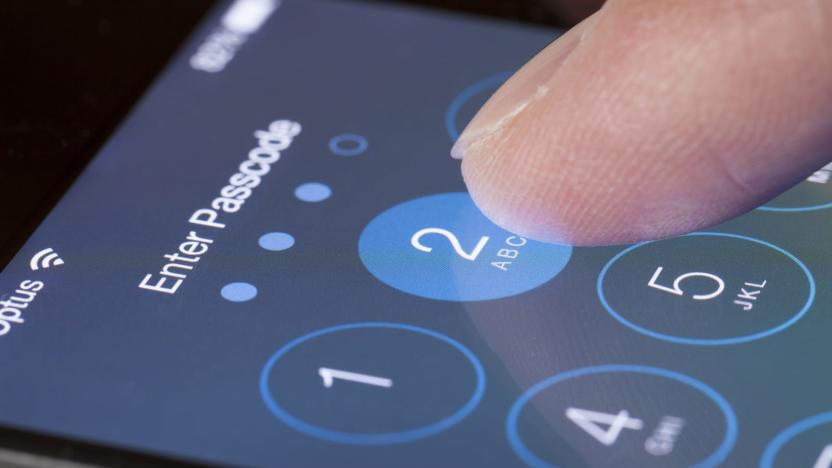
ACLU urges devs to safeguard users with anti-snooping measures
Apple recently announced that it was closing the loophole that allows authorities into iPhones via the charging and data port. The company said it wasn't trying to defy police, but rather deter criminals and spies who aren't bound by privacy laws. However, the American Civil Liberties Union (ACLU) believes that government requests for personal data still represents a significant security risk to users, and is launching a guide for software developers to help them make more informed decisions about protecting the integrity of software update channels.
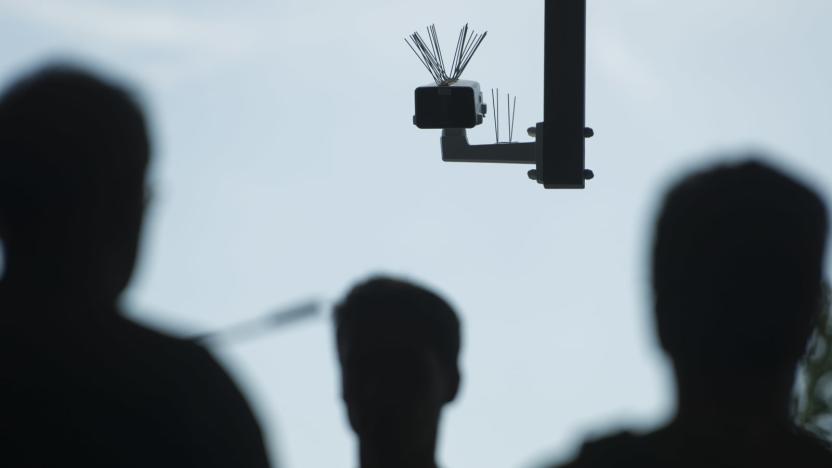
Amazon is selling facial recognition tech to law enforcement
If you're nervous about the privacy implications of Amazon's camera technology, there might be a good reason for it. The ACLU and a coalition of civil rights groups are calling on Amazon chief Jeff Bezos to stop offering Rekognition facial detection system to government customers after learning that the company is actively helping law enforcement implement the potentially invasive technology. Police in multiple regions have partnered with Amazon on surveillance projects, including an Orlando proof-of-concept that lets Amazon search for "people of interest" through city cameras as well a Washington County, Oregon initiative that lets officers scan people to see if they turn up in a mugshot database.

The EFF wants you to know why Facebook removed your post
The Electronic Frontier Foundation (EFF) wants more transparency from social media sites when it comes to takedowns. Much like reports companies issue for government requests, the EFF would like to see Facebook, Google and other platforms issue quarterly reports of how many user posts are removed. The organization would also like to see detailed explanations about said takedowns and for an appeals policy to be implemented "to boost accountability," it writes.

Our democracy is broken. Why can't technology fix it?
Something is rotten in the state of America. For a nation that has for so long promoted itself as a global champion of democratic ideals, we have a rather difficult time practicing what we preach. Outdated election mechanisms like the Electoral College and potential interference from hostile foreign powers aside, Americans have historically proven themselves reticent to participate in choosing their leaders. Turnout for presidential elections hasn't topped 65 percent of the eligible population in the past 100 years nor has it even come close to cracking 50 percent for midterms over the same period. During the 2016 election, just 63 percent of the U.S. civilian voting-age population showed up at the polls, according to the US Election Assistance Commission, with just five states -- Colorado, Maine, Minnesota, New Hampshire and Oregon -- managing to break 70 percent participation. Only 42 percent of Hawaiians bothered to vote.

Privacy groups ask tech companies to sign user data 'security pledge'
A number of organizations including the ACLU, Fight for the Future and Color of Change have called on tech companies to sign a pledge and commit to protecting their users' data. The move comes as repercussions of the Cambridge Analytica scandal continue to unfold. "Technology can empower and grant freedoms to us all, but now our online data is empowering data brokers, ISPs, surveillance companies and runaway government agencies to discriminate, exploit and limit our freedoms," says the Security Pledge website. "Companies and governments can exploit the massive troves of data companies have on people and weak links in internet security. They can twist the internet into something it was never meant to be: a weapon against the public."








